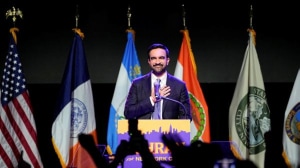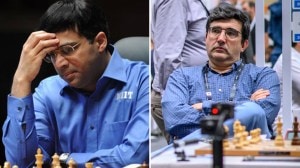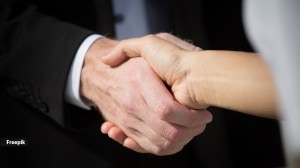Syed Ghulam Nabi Fai shows how easy it is to win influence in US
ProPublica tracing Fais rise and fall from a Kashmir village to his arrest in Washington
The night should have been a coup for Syed Ghulam Nabi Fai. Once a poor villager from halfway around the world,Fai had become the go-to man in Washington,DC,for his cause,Kashmir.
And there he was on March 4,2010,hosting a fundraiser for Dan Burton,the Indiana Republican who had been the chief supporter in Congress of Fais Kashmiri American Council for 20 years. In some ways,the event inside Fais home in Fairfax,Virginia,symbolised everything that Fai had become,featuring speeches in the living room and kebabs and curries in the basement.
But it barely camouflaged how Fais carefully built world was collapsing. The FBI was monitoring almost every move Fai made,every email he sent,every call he received. Investigators believed Fais main donors were not well-meaning idealists but members of the ISI.
Within weeks,the Justice Department would send Fai a letter of warning. Within months,he would be pulled over by NY police with $35,000 in cash in his car. And by the next year,Fai would be arrested,the unlikely central character in a scheme by a foreign government to pay more than $4 million to sway US politicians and policy on Kashmir,the Justice Department says.
Fais tale of rags to riches to arrest this summer is a lesson in how easy it is to win influence in Washington. Fai mingled with some of Americas top politicians,meeting former President Bill Clinton and drawing as many as 32 members of Congress to his annual conference on Kashmir.
Fais alleged accomplice,Zaheer Ahmad,is a prominent Pakistani-American who runs one of the nicest hospitals in Pakistan.
So far,Fai,62,and Ahmad,63,have been accused of failing to register as foreign agents. Fai also has been accused of making false statements. But Ahmad,who is free in Pakistan,and Fai,released on bond and under house arrest,may soon face other charges.
Early years
Typically,people at the centre of such cases remain a mystery,refusing to speak about their predicament or what led up to it. Fai,a birdlike man with a sing-song voice and thinning hair combed to the side,declined to talk about the case against him. But in his only interview since his arrest,Fai offered a detailed account of his journey from being a victim of world events to,in some small way,a shaper of them.
My wife said,You are not doing anything wrong,so you are helping your people of Kashmir, said Fai,sitting on a floral-patterned couch beneath a framed verse of the Quran. And we know its not an easy job,but we have to live with it.
Fai was born in 1949 . By the end of 1980,Fai landed in the United States see box.
A confidential witness allegedly told FBI agents that in 1989 the ISI picked Fai to run the Kashmiri American Council because he had no overt ties to Pakistan. Revenue filings show the group got startup funds from two board members and a $20,000 loan from the North American Islamic Trust.
Fai rented an office suite about three blocks from the White House,IRS records show. The Kashmiri American Council was open for business.
American dream
Over the next 20 years,Fai became the face of the separatist Kashmiri cause in the United States. He never advocated publicly for Kashmir to join Pakistan,calling instead for self-determination.
Fai was making inroads with US politicians. In 1993,Fai wrote to President Clinton about the suffering of Kashmiris,winning news coverage when Clinton wrote back. In 1996,Fai met Republican presidential nominee Bob Dole. In 2000,he met Clinton in Chicago,just before Clinton visited India.
Fai also leapt onto the world stage. He travelled to more than 40 countries,from Indonesia to Spain. Fai said he met more than 1,000 ambassadors from around the world.
In Pakistan,he was treated like a visiting dignitary. In June 2009,Fai stayed at the best hotel in Islamabad and met the president,prime minister and foreign minister. A video from the trip showed Fai and President Asif Ali Zardari sitting in white armchairs,flanking a photo of Zardaris late wife,Benazir Bhutto.
Each year,starting in 2003,Fai co-hosted a Kashmir peace conference,usually on Capitol Hill. The 2007 conference drew Republican Joe Pitts of Pennsylvania,a dozen other members of Congress and various Pakistani dignitaries,as well as a handful of Indian and Indian-American human-rights activists and scholars. Fai covered the expenses of almost all the attendees who travelled to Washington.
About 20 of Fais guests then flew with him to Montevideo,Uruguays capital,for a one-day conference on Kashmir. Fai paid for the groups flights. He also covered accommodations at the Radisson,one of Montevideos nicer hotels,having about $13,000 wired to him to cover the tab in cash,Hafiz Mohammad Sabir an imam in Brooklyn said.
By last year,Fai was in some ways living the American dream. His second wife,whom he had met at Temple University,had found a good job at the US Environmental Protection Agency. They had bought a four-bedroom brick house in the Virginia suburbs for more than $650,000. They had raised two children,one who studied at Ohio State University,the other at Stanford.
But behind the scenes,things were unravelling.
Seeds of doubt
As far back as 1991,stories in the Indian press referred to Fai as an agent. The Indian embassy refused to send anyone to his conferences. Others were also suspicious: How did Fai have so much money? How could a shoestring nonprofit afford an office near the White House and a top-notch PR firm?
Several Kashmiri American Council supporters said they had donated regularly,and were unaware of the ISIs purported role in funding the group. But the FBI says the largest donations came from a group of at least 13 unnamed straw donors,Pakistani-American doctors and businessmen who gave cash to Fai or wrote cheques to the council. Zaheer Ahmad,who ran Shifa International Hospital in Islamabad,allegedly reimbursed the straw donors with money he received from the ISI.
Fai has given $28,165 to federal candidates and political parties since 1990,including $10,290 to Burton and $9,500 to the National Republican Senatorial Committee. Others connected to Fai,Ahmad and the Kashmiri American Councils board of directors donated at least $93,456 during those years,including $28,551 to Burton.
So far,the FBI has identified only $4,000 in ISI money that went into campaign contributions,from Ahmad and his nephew.
Osama connection
Agents first learned of the case in 2005 from an informant who wanted to reduce his jail sentence. The counterterrorism division of the FBIs Washington field office started looking into Fai and more troubling allegations against Ahmad.
A Pakistani-American physicist,Gul Chughtai,who specialises in cancer treatment and clashed with Ahmad while head of the cancer department at Shifa International Hospital,said he first talked to the FBI about Ahmad four years ago.
Chughtai said an agent from the counterterrorism division has talked to him several times about a trip that Ahmad allegedly made to Afghanistan with an eccentric Pakistani nuclear scientist named Sultan Bashiruddin Mahmood. Mahmood and another colleague had met Osama bin Laden and Ayman al-Zawahiri in Afghanistan in August 2001,when the al-Qaida leaders had allegedly inquired about nuclear weapons. Mahmood was later placed under house arrest in Islamabad.
One day he the counterterrorism agent called and asked about Zaheer going with a nuclear scientist to see Osama. I said,I heard the story,dont remember the guy. He asked if I would recognise the name. I said,Maybe. He said,Bashiruddin. And that was the name I remembered.
An FBI official confirmed that the agent had met Chughtai but refused to discuss the investigation.
Scrutiny and arrest
The FBI first questioned Fai in 2007 but seemed to step up its scrutiny in 2010.
Despite the growing pressure,Fai kept travelling the world and kept asking the ISI for more money,the FBI said. To some,Fais behaviour indicated that he believed that he was protected.
The ISI probably told him: Dont worry,youre taken care of,youre part of the tacit agreement we have with the CIA, said Vijay Sazawal,who started a rival Kashmiri group in the United States. Hes not stupid. I have to believe he was confident he was shielded.
In February,Fai travelled to Pakistan,right about the time that US and Pakistan relations were starting to fall apart. CIA operative Raymond Davis had been arrested for allegedly shooting two men in Lahore.
When Fai returned home,his luggage was searched. Customs agents found what appeared to be excerpts of a court filing on Davis from the Lahore High Court. Within days,Sarah Webb Linden the FBI agent who later signed the affidavit against Fai and Ahmad visited Fai at home. She asked whether he knew anyone in the Pakistan government. Yes,he admitted. But he then suggested that none of them knew him,the FBI affidavit said.
Linden testified that she emailed Fai on July 13,asking to meet again to talk about the situation in Kashmir. She showed up at Fais house after he returned from a trip to the United Kingdom,on the morning of July 18. Fai again denied working with the ISI.
That night,Fai went out to dinner with family and friends. After coming home,Fai or a family member called the police to report a suspicious car parked near Fais driveway. FBI agents were in the car.
The next morning,Fai was arrested as he drove his wife toward the subway.
…And after
In a phone conversation,Ahmad said he was free and working at Shifa. Until this case is finished,I cant discuss this, Ahmad told a ProPublica reporter. And it could be dangerous for you,too.
After his arrest,Fai sat down for another interview with Linden. This time,Fai admitted that he had been affiliated with the ISI for 15 years and that no one on the Kashmiri American Council board had known the group was funded by the ISI,assistant US attorney Gordon Kromberg said at the detention hearing. Kromberg said Fai agreed that the ISI directs him,Mr Fai,to go to certain conferences and to report on certain people,including some that were mentioned in the criminal complaint.
Fai told ProPublica hes stopped talking to Ahmad or anyone else in Pakistan. He said he doesnt want anyone else to get in trouble.
While under house arrest,Fai keeps working even as he reports all his meetings to the FBI. He goes to the mosque to meet friends. He edits a new 54-page paper on Kashmir,focusing on topics such as the UN resolution from 1949 and the visit of the imam of Kaaba in 1980 see box. He sends out emails to the Kashmiri American Councils mailing list,saying he will keep fighting for Kashmiris to decide their future.
God willing! he wrote in one. I will continue to do that in days,weeks,months and years to come. http://www.propublica.org
BEFORE AMERICA
Fai was born in 1949… grew up in a poor farming village 25 miles outside Srinagar. His father was an Islamic cleric.
Fai listened to speeches from Pakistan on an illicit transistor radio. He waited outside for eight hours to see a leader just released from jail… Fai recalled watching his family slaughter sheep and chickens,then taking food and clothes to Pakistani soldiers hiding in the forest in 1965.
At age 16,Fai married,his first wife said. The couple had two children. Both died young.
Fai attended college in Srinagar and fell in with the Jamaat-e-Islami. In 1976,shortly after the prime minister declared an emergency and banned groups like Jamaat,Fai left home for a university outside Delhi and eventually for Saudi Arabia.
At age 31,Fai returned to Kashmir,escorting perhaps the most influential Islamic leader in the world imam of Kaaba. Tens of thousands of people showed up to hear the imam give a series of speeches. It really revolutionised the whole thinking of the people of Kashmir: We are not alone, Fai recalled.
After that visit,Fai never returned to India. Ghulam Nabi never wrote to me,never sent any money, said Peera Bano,his first wife. Fai said he didnt write or call because he didnt want to endanger his family. He also said he divorced his first wife,which she denies.
By the end of 1980,Fai landed in the United States. Through the King Faisal Foundation,the Saudis agreed to pay for his schooling at Temple University and living expenses,at least $50,000 a year.
(Excerpts from a ProPublica investigation tracing Ghulam Nabi Fais rise and fall from a Kashmir village to his arrest in Washington)
Kim Barker,Habiba Nosheen & Raheel Khursheed



- 01
- 02
- 03
- 04
- 05




























